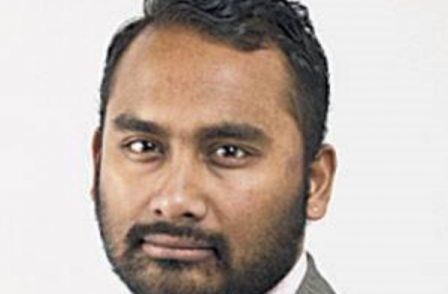
The Independent has said BBC media editor Amol Rajan “must have misremembered” an anecdote claiming he made a column the title’s most read story of the month by tweaking the headline to chase clicks.
Rajan made the claim in a speech to students at the University of Kent last month in which he laid out a criticism of the media industry, publishing a transcript of it on the BBC News website on the weekend.
The former Independent editor was forced to issue a statement after Buzzfeed UK said he appeared to have “delivered fake news” to students when it failed to find evidence of the column in a Google search.
In his speech Rajan said that relying on digital advertising as a source of revenue was “almost always a disastrous strategy” for newspapers as it “distorts your editorial values” and makes free sites “desperate for traffic”.
To back up his point, he offered an anecdote from his time at the Independent. He said: “I know too well how chasing clicks, not least through tweaking SEO [search engine optimisation], distorts editorial priorities.
“At the end of my first week on The Independent website, I once had just one article left to publish. I was desperately short of numbers on the traffic front, and it would have spoilt my weekend if I didn’t hit my target.
“Alas the only piece I had left to publish was by Andreas Whittam Smith, the founding editor of the paper.
“He was a great journalist but not a big mover of traffic and this piece was about the need for greater transparency in the House of Lords and civil service – not the sort of salacious, traffic-generating subject you’d see in the Mail’s ‘Sidebar of Shame’.
“Desperate for traffic, I looked at what was at the top of Google News. I saw that One Direction had just released an album in Canada. So I put a headline on Andreas’s piece that said: ‘All the evidence points in one direction: we need reform of our institutions now’.
“It was the most read piece on independent.co.uk that month. I love the idea of all these teenage girls in Canada looking up the latest song by Harry Styles and Zayn Malik, and instead coming across an essay by the founder of The Independent on restructuring the Treasury…
“Suffice to say, tweaking headlines in this fashion ain’t what I went into journalism to do.”
Following Buzzfeed UK’s claim that it could not find the story with the “mega viral” headline, Rajan issued a statement on Twitter in which he said he “obviously didn’t fabricate the anecdote”.
He added: “I remember the story and the headline I put on it very well, and the discussions in the office that followed.
“If any aspect of the anecdote I told is factually incorrect I obviously apologise unreservedly to my esteemed former colleagues at The Independent – but above all to the students at the Centre for Journalism at the University of Kent.
“I shared the lecture with some senior BBC colleagues in advance, but didn’t ask them to fact check it. Any errors are mine and mine alone.”
The statement was issued before Buzzfeed had published its story online, prompting a rebuke from UK editor Janine Gibson.
She tweeted: “Wow. I mean, it’s hardly Russian spies but, in general, when you approach a BBC employee for a comment on a story, you’d expect them not to tweet it out before we publish it.
“The point is – and I’m not claiming this is Watergate but it happened to @SamCoatesTimes last week on something much more important – that it disincentivises journalists to check with subjects of stories before publication. And that’s bad for everyone.”
Following Rajan’s claims, an Independent spokesperson told Press Gazette: “Amol made many good points in his recent speech but an anecdote about a headline apparently used on an Andreas Whittam Smith article back in 2012 must have been misremembered.
“Having examined the archives, we found the piece, which indeed – for a relatively short time – used the words ‘one direction’ in the headline, although the article was arguing that the BBC’s lack of action over Jimmy Savile amounted to a cover-up, rather than addressing Lords reform.
“It was not the most read of the month, but was instead the 1,460th most read. In any event, adding band names to unrelated pieces wouldn’t fool Google, which takes the full context into account.
“Even if it did work, any misled readers would simply click the back button, leading to incredibly low engagement, and eroding SEO strength. So there is no motivation to mislead.
“Further, while of course we discuss our readership figures (any newspaper, TV show, radio programme would put some focus on the figures), we don’t have formal ‘targets’ and never have had.”
“All this leads us to agree with Amol’s point about not getting into journalism to game SEO headlines. It’s not something that makes sense, and it’s not something we do.”
Email pged@pressgazette.co.uk to point out mistakes, provide story tips or send in a letter for publication on our "Letters Page" blog
